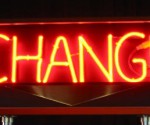How to Protect Your Clients Against Cyber Squatting
Over the last couple of weeks I’ve been busy protecting clients from various forms of cyber squatting. For those who are unfamiliar with the term, cyber squatting is when someone uses the name of a brand online, often by taking a domain name, but increasingly by masquerading as an official source on social networks.In order to mitigate against this, we always buy a variety of domains for clients, but as part of the planning process now have to think in terms of social networks and claim dozens of permutations of usernames that cyber squatters could use.I’ve also had to be reactive after a recent client win by contacting Twitter to transfer a dormant account that used a copyrighted name. This is the other side of cyber squatting, where someone has already secured a vanity URL or Twitter handle incorporating a client’s name. This is an interesting scenario and both Facebook and Twitter have very clear policies on copyright infringement.
Whilst, this approach may seem somewhat overcautious, it has to become a routine part of reputation planning and management. By the time you wait for a crisis to occur, it will be too late. Someone out there will already be making a point at the expense of your client.
It has been interesting to see Facebook getting tough on cyber squatters which culminated in the closure of a page with 47,000 fans. Although, Facebook acted tough on this occasion, they reaffirmed to me that “a Community Page is not intended to represent the voice of a brand, public figure, or organization, but rather to serve as the best collection of shared knowledge about a topic.”However, I understand that Facebook is in the process of enabling representatives of a brand with an official Page to claim Community Pages covering the same topic. This move will certainly ruffle a few feathers in the online world and may further damage consumer satisfaction, but it will most certainly keep brand managers happy.As professional reputation managers it is important to demonstrate that we have planned for and mitigated against cyber squatting in order to prevent a repeat of the BP Global PR Twitter account, which will continue to haunt the oil giant for years to come, as a simple Google search for ‘BP PR’ demonstrates.
Whilst, prevention is always better than trying to find a cure, you can contact both Facebook and Twitter to resolve any issues around cyber squatting and copyright infringement.
















Interesting post Ben. Like you I would always advocate that clients protect their brand and think longterm. However from my experience a lot of companies have a ‘it won’t happen to us’ attitude and are unwilling to purchase more domains that necessary and so on. I think there will need to be a lot more BP’s to really highlight the importance of protecting your brand identity with the same vigour online as you would offline.
[…] This post was mentioned on Twitter by Ben Cotton, Ben Cotton. Ben Cotton said: How to protect your clients against cyber squatting: http://wp.me/pEMSR-dQ […]